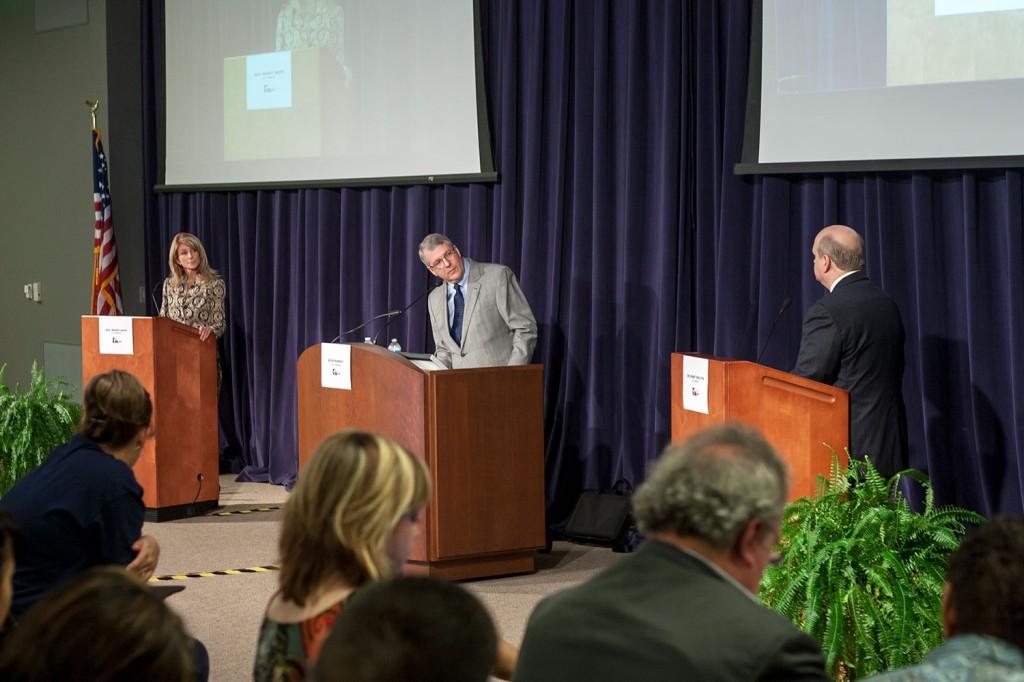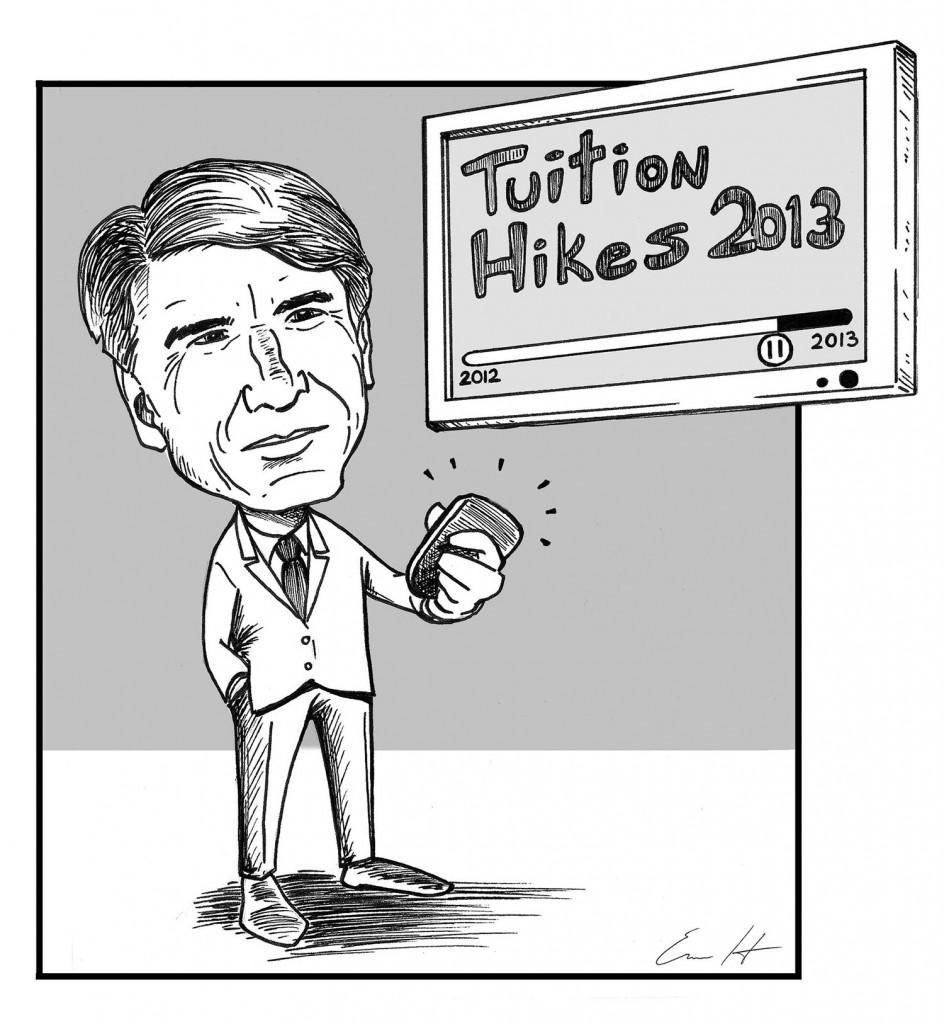By Z. Poe Doyle/ reporter
Politically charged opinions, the dreams of immigrants and the history of a movement were discussed during Deferred Action for Childhood Arrivals: Dream Act 101 Oct. 9 on NE Campus.
Spanish instructor Natalia Verjat began with a quotation from President Barack Obama that she said summed up her own view: “It makes no sense to expel talented young people who for all intents and purposes are Americans.”
Verjat’s presentation focused on helping students understand the DREAM, or Developmental Relief and Education for Minors Act.
The act, which has been rejected each time it has gone before Congress, seeks to offer citizenship to youth, here illegally, who are of good moral character; have graduated from an American high school, obtained a GED or are currently enrolled in an institution of higher education; are between the ages of 12 and 35 at the time of bill enactment; have proof of residence in the United States for at least five consecutive years since the date of arrival; and have proof of having arrived in the United States before age 16.
Those meeting these criteria would then, within a six-year period, also have to successfully complete two years at a university or graduate from a community college to be eligible for permanent residency.
“If the dreamers, as those who benefit from this act are called, were to have a clear path,” Verjat said, “the contribution to the Texas economy would be over $66 billion by 2030.”
Although the DREAM Act has yet to become law, Obama in June used an executive order to put portions of it into effect. Applicants who meet the criteria do not have access to citizenship but do receive a legal, “deferred” status that blocks for two years prosecution for illegal entry, Verjat said.
“It’s possible within that two-year period that we might actually get comprehensive immigration reform,” she said. “It’s nice to be hopeful.”
There are no easy answers for simplifying the immigration process, Verjat said.
“That is a question that lawyers and politicians don’t even know,” she said. “I, personally, don’t think it is possible.”
Verjat said that the United States, whose leaders say they want a more educated citizenry, should provide students equal educational opportunities without regard to any social or economic factors. She said in today’s political climate, such initiatives are subject to a variety of emotions, some negative, surrounding their content.
One argument against the DREAM Act is the idea that allowing illegals to receive permanent status threatens to usurp “fallback” jobs that many Americans depend on when the alternative is unemployment, Verjat said.
“Those kids have the same right as anyone else — to dream the only thing they know, the American dream,” she said.



























